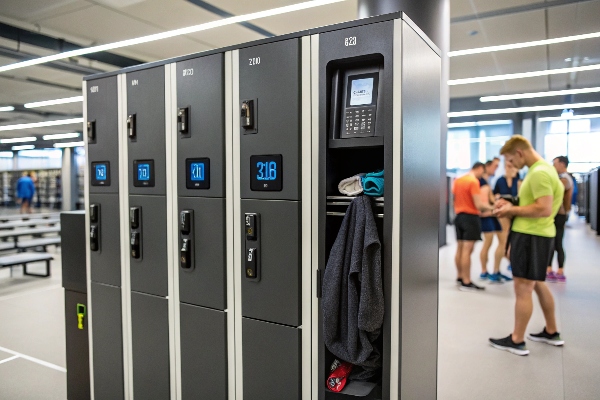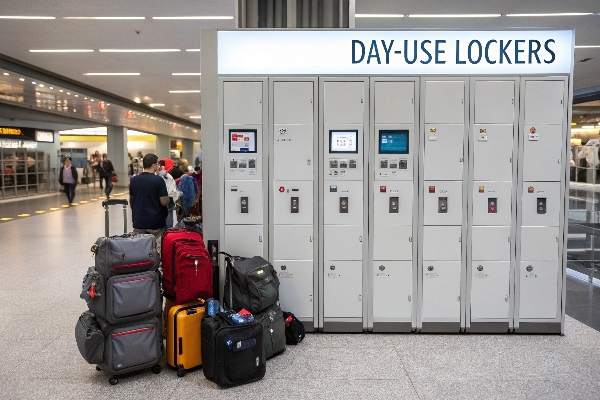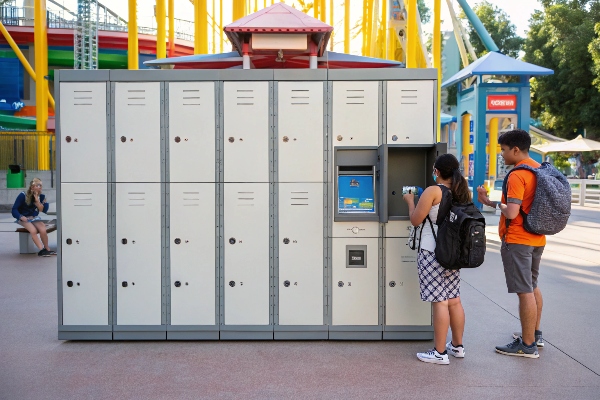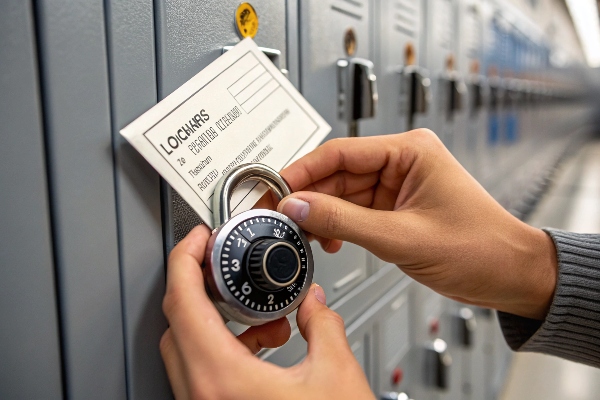
Personal locker locks for daily use are designed to secure individual lockers that are frequently accessed by people on a daily basis. These lockers are common in places like gyms, schools, and workplaces, providing a safe space for personal items such as bags, clothes, or electronics. The locks used for these lockers can vary in complexity, from simple key locks to more sophisticated combination or digital locks.
Personal locker locks are essential tools for ensuring the safety and security of items in high-traffic areas. They can be mechanical, digital, or even biometric, with each type offering different levels of security and ease of use.
What Are Day-Use Lockers?

Day-use lockers are designed for short-term storage, typically intended for use during a single day or a few hours. These lockers are often found in public areas like gyms, airports, schools, and amusement parks, where people need a temporary place to store their personal belongings while they go about their activities.
Day-use lockers are perfect for people who need to store items temporarily while engaging in activities outside their homes. They are convenient, secure, and easy to use.
Key Features of Day-Use Lockers:
-
Short-Term Use:
- Typically rented for a few hours or a single day, making them ideal for situations where long-term storage is not necessary.
-
Accessible Locations:
- Common in gyms, public transit stations, or events like concerts and amusement parks.
-
Locking Mechanism:
- Can be secured with various locking mechanisms, including traditional padlocks, combination locks, or digital locks.
-
Flexibility:
- Day-use lockers often have different sizes, catering to both small and larger items, such as bags, coats, or sports equipment.
Day-use lockers are essential for protecting personal belongings when individuals are away from home or in environments where carrying all their items isn’t feasible.
How Do Day-Use Lockers Work?

Day-use lockers function through a simple yet effective system designed for short-term storage. Depending on the facility, users may either rent the locker for a fixed period or gain access to the locker through a membership or pre-purchase of a key or combination. The locking mechanisms are straightforward to operate but offer reliable security for everyday use.
Day-use lockers typically operate on a rental or access-based system, with either a manual key, a combination lock, or an electronic keypad system to ensure users’ belongings remain safe.
Types of Locking Mechanisms:
-
Keyed Lock:
- The traditional method, where users are given a key to access their locker. After use, the key is returned to a locker attendant or deposited in a safe location.
-
Combination Lock:
- Users set a personal code and open the locker by entering the combination. This type of lock is popular due to its ease of use and the elimination of keys.
-
Digital Lock:
- Often used in modern facilities, digital locks allow access via pin codes, RFID cards, or even biometric recognition (fingerprint or face scan).
-
Smart Lock:
- Some day-use lockers feature smart locks, where access is granted through a smartphone app, providing additional security and convenience.
These systems ensure that day-use lockers provide quick and easy access while keeping items secure.
What Is the Combination Lock for Locker?

A combination lock is a type of lock that operates through a sequence of numbers or symbols that the user must input to unlock it. Unlike a key lock, which requires a physical key to unlock, combination locks rely on a code that the user sets and memorizes. Combination locks are common in lockers, luggage, gates, and other personal storage systems.
A combination lock offers a high level of security while eliminating the need for physical keys. The user simply needs to remember the correct combination to gain access to their locker.
How Combination Locks Work:
-
Setting the Combination:
- Combination locks can be set to a user-specific number sequence, typically consisting of three or more digits.
-
Opening the Lock:
- To open a combination lock, the user turns the dial or wheel to the right sequence of numbers, aligning them with the mechanism that releases the lock.
-
Security:
- Combination locks are considered secure because they don’t rely on physical keys, reducing the risk of lost keys or unauthorized access. However, users must remember their combination to avoid lockouts.
-
Lock Resetting:
- Most combination locks allow users to reset the combination. This feature ensures that if a code is forgotten or compromised, it can be easily changed.
Combination locks are highly favored for lockers in gyms, schools, and workplaces due to their ease of use and reliable security features.
Conclusion
Personal locker locks, particularly combination locks, offer a practical solution for securing belongings in high-traffic, public spaces. Day-use lockers are designed for short-term access and come equipped with locking mechanisms that provide convenience and security for users. Whether you are using a simple keyed lock, a combination lock, or a modern digital lock, personal locker locks ensure that your items remain protected while you engage in activities outside your home or workplace.

